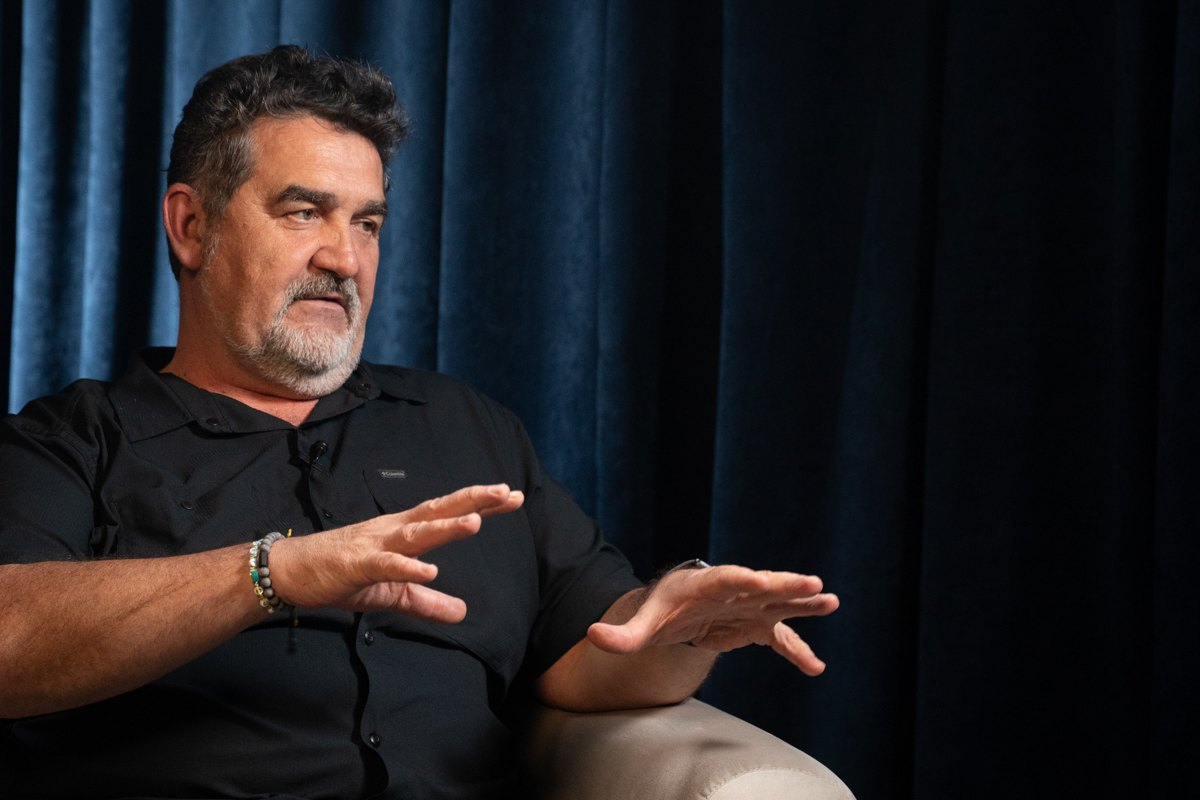
‘There are several possible scenarios for Iran’
Has the war between Israel and Iran ended — or is this pause merely a prelude to a larger conflict?
Since the key objectives have not been achieved, one could describe the current moment as a ‘pause’ — a preparatory stage before the next confrontation. Much will depend on whether the Iranians manage to strike a deal with the Americans. In my view, gaining the ability to freely sell oil and access financial markets is a far more valuable prize right now. Under such circumstances, one might say that the conflict is being postponed for several years.
The key unanswered question remains the fate of Iran’s nuclear programme. What actually happened: has it been destroyed or merely seriously damaged? And are the damages such that Iran could restore it — or even accelerate it? Estimates vary on how long it would take to reach weapons-grade enrichment, ranging from one month to two years.
The plans going forward are also unclear, especially given the significant change in Iran’s leadership. A large portion of the country’s military and political elite was killed during this war. The Israelis deliberately targeted this leadership. A new group is now coming to power — raising questions about their managerial abilities and political leanings.
According to expert assessments of the internal dynamics, the generation stepping in to replace the fallen is reportedly more indoctrinated and radical. They appear more willing to take risky actions. That said, this remains speculative.
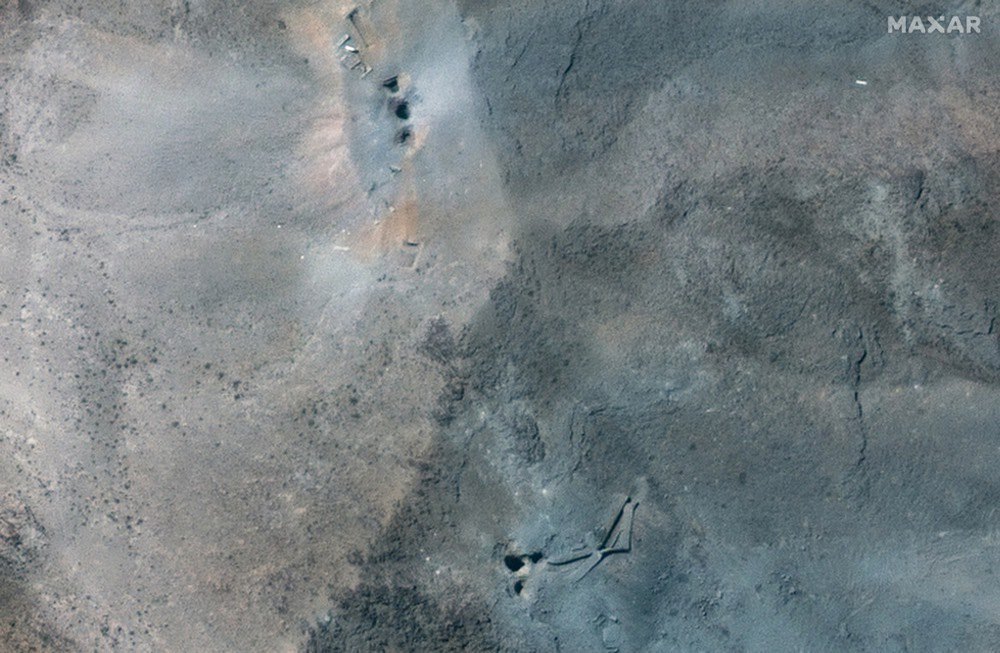
How might the situation in Iran evolve?
Several scenarios are possible. In the first, Iran enters negotiations with the Americans and reaches agreements that allow it to lift sanctions and launch a programme of national reform. However, this could eventually spark internal tensions between the Islamic and republican elements of the regime. Both of these principles — theocratic and republican — emerged from the 1979 revolution. A crisis between them could lead either to an evolution of the regime or to a new revolution.
It is very difficult to predict how critical public opinion will develop in response to the war's outcome. For now, people have rallied around the flag. Still, it was surprising to hear some experts, Israeli politicians and parts of the American establishment suddenly view the war as a chance for swift regime change. That’s not how things work.
The prevailing emotion among Iranians has been humiliation. They felt their dignity had been undermined. This isn’t the kind of sentiment that immediately leads to revolution — people don’t storm barricades over wounded pride — but over time it could prove dangerous for Ayatollah (Ayatollah being the highest clerical title given to senior Shia scholars in Iran — Ed.). This strong feeling may become entrenched, and after some time the population might present a 'Hamburg bill' (a fair and impartial settlement of the issue — Ed.).
Iran could acquire the resources it needs and recover quickly — in which case the likelihood of revolution would diminish. However, if the recovery process is marred by crises, then a revolutionary scenario becomes more likely.
Another scenario is the continuation of the war. In this, the Iranians will place their bet on China. Donald Trump’s appeal to the Chinese to pressure Tehran not to close the Strait of Hormuz, followed by the rapid exit from the (Iran-Israel — Ed.) war, leads us to think that, in principle, the Chinese either had some kind of profit here or were just simulating. There are forecasts and talks about China selling fighter jets to the Iranians.

Airspace control has become a central issue for Iran after losing it during the recent conflict. Israel has declared that it reserves the right to carry out strikes whenever it deems its security under threat — a practice it has already normalised in Lebanon and Syria, and which now extends to Yemen and Iran itself.
In preparation for a renewed confrontation, Iran is expected to focus heavily on strengthening its air defences and continuing its missile programme. The recent war revealed ways to bypass systems like the Iron Dome — Israel’s mobile, all-weather air defence system (developed by Rafael Advanced Defense Systems — Ed.) — and the Iranians have seen firsthand how damaging and disruptive such strikes can be.
In this scenario, a deal with the US appears unlikely. And if an agreement does take shape, it will likely be framed in such a way that the Americans can distance themselves: ‘There is no nuclear programme here, so we’re stepping back.’
I am absolutely convinced that Iran’s nuclear programme was never truly about building a bomb. It has always been a bargaining chip — uranium enrichment pushed to the threshold level to trigger negotiations, not a detonation.
‘The US, Iran and Israel could all claim victory — it’s a matter of interpretation’
What do the Americans stand to gain from negotiating a lifting of sanctions on Iran?
We often imagine the Americans as ideological crusaders, but this current administration is transactional. For many American businesses eager to enter the Iranian market, the incentives are clear. Iran has a population of 90 million, vast oil reserves, and enormous economic potential — all of which make it a highly attractive prospect.
There are also strategic arguments: engaging Iran economically could pry it away from China and increase US influence in the region. Risky as that may seem, some may view it as an opportunity worth exploring.
After all, back in 2015, just before the signing of the Joint Comprehensive Plan of Action (JCPOA — a deal that limited Iran’s nuclear programme in exchange for sanctions relief — Ed.), European business delegations were poised and ready. The moment the agreement was signed, they flooded into Tehran to begin negotiating contracts. The Americans, by contrast, walked away empty-handed.
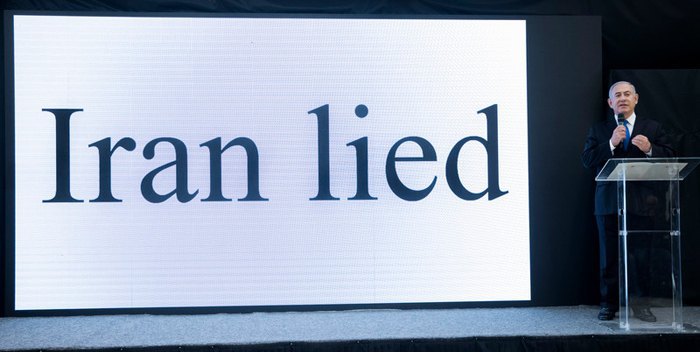
I believe that the decision to withdraw from the agreement in 2018 was more influenced by Netanyahu’s concept of an Iranian nuclear bomb, but that argument was voiced and was effective for Trump. In 2018, the US withdrew from the agreement and reinstated sanctions. All the formats that the Europeans later tried to create to bypass American sanctions failed.
Who won in the twelve-day war: Israel, Iran, the US?
It depends on the point of view. Iran is a huge country with a population of 90 million. At the same time, they see themselves as in a besieged fortress, always preparing for war with the US and Israel. We will not talk about miscalculations, about why they failed, especially in the first two days, but they were preparing. The result of the war for Iran is that Iran remained, the regime remained. Moreover, they delivered a rather serious retaliatory strike. Whatever is said, the destruction in Tel Aviv, Haifa, Be’er Sheva is tangible. From the Iranian perspective, they held out, which means—they won.
The Americans crossed the red line of fear of Iran, which dates back to the 1980s, when the operation to rescue military hostages in the Persian Gulf failed. They overcame that barrier. They struck Iranian nuclear facilities and at once, in Trump’s words, closed the issue.
From Israel’s point of view: they struck the air defence systems, destroyed a significant number of generals and scientists. Although they did not achieve the second goal—the regime was not overthrown—they neutralised the threat that was looming over Israel.
All three countries can celebrate victory—it’s a matter of interpretation.
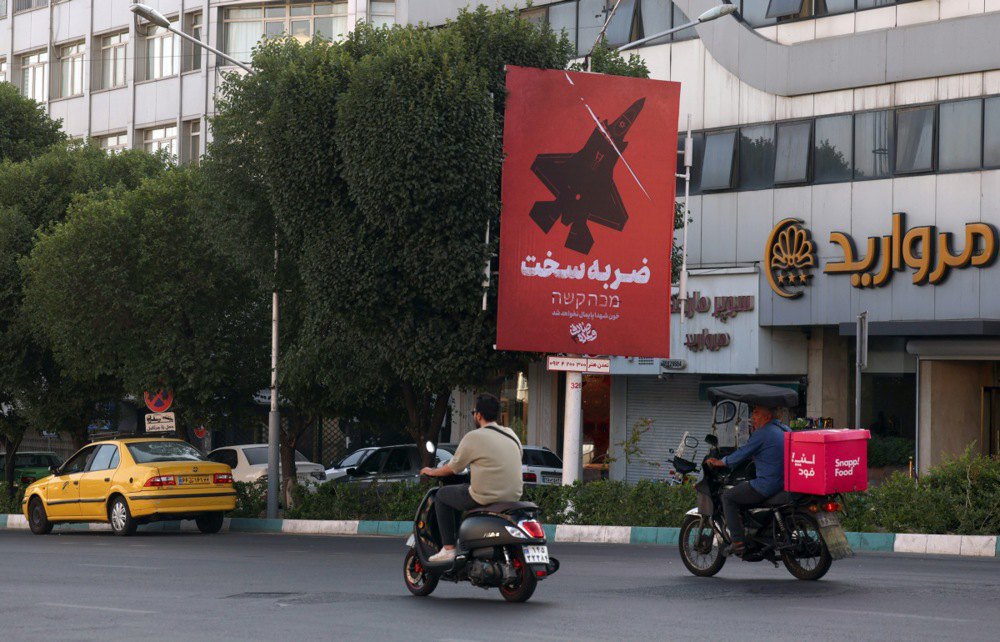
Is Iran now hunting down enemies of the state, spies, following the war?
We are currently seeing serious repressions in Iran against those whom military tribunals have accused of treason and espionage for Israel. And we cannot say who among them are people who got caught in the hysteria around spy mania, terrorist attacks, explosions and assassinations. There were many such reports.
The repressions continue and seriously complicate any opposition activity. All Iranian propaganda is aimed at undermining the authority of any opposition and portraying it as Israeli agents.
‘Iranians have an a priori negative attitude toward Russia; sanctions pushed them into cooperation’
What policy does Russia pursue regarding Iran and Israel? Is it an attempt to find balance and be a mediator, or just incapacity?
Russia is trying to find a balance, and not only with Israel. They are also trying to negotiate with the new government of Syria. So from the Russian perspective, not all is lost, there is a prospect.
Looking more broadly at Russian-Iranian relations, I can say (and I won’t be original in this) that Iranians have an a priori negative attitude toward Russia. In the 19th century, Russia fought a whole series of wars against Iran. In the 20th century, Russians twice occupied Iran—during the First and Second World Wars. Iranians remember very well how the Soviet Union in 1944 did not want to leave the southern provinces of Iran, where Soviet governments were being created. Only the insistent demand of the British forced Soviet troops to withdraw from these territories. Iranians have no trust in the ‘Soviets’, in the Russians.
The circumstances that pushed Iran into Russian arms were connected to the fact that the Iranians were under sanctions.
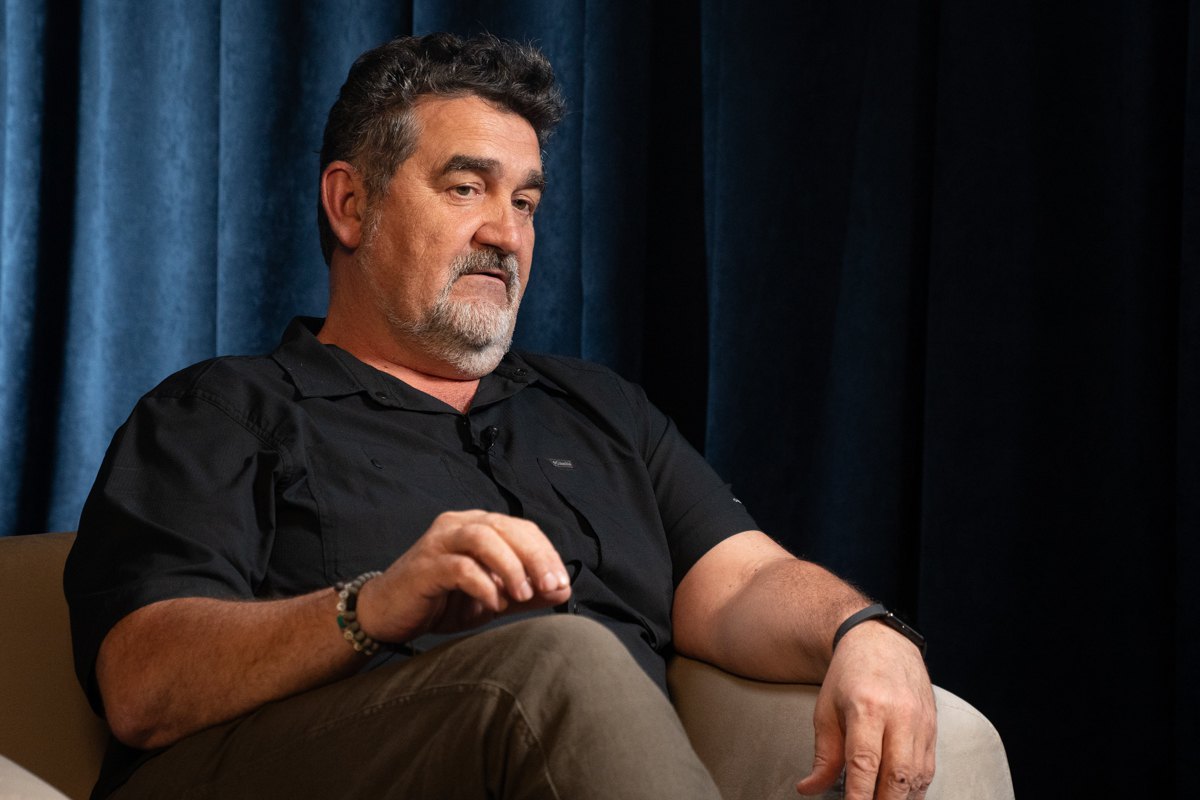
When did the rapprochement between Russia and Iran begin?
The changes started after 2015, when Iran gained a window of opportunity as a result of the international nuclear agreement and continued its expansion in the Middle East.
That was when a situational alliance began between Russia and Iran around the Syrian issue. It gained strategic importance when Iran made the completely mistaken decision to become an ally of Russia in the war against Ukraine. That was an absolute mistake. When that decision was made, I understand, it did not happen without Ali Khamenei. Although operationally, it was handled by the Islamic Revolutionary Guard Corps and then-president Ebrahim Raisi.
Since then, Iranians have tied themselves to the Russians but understood that the Russians have a separate interest with Israel.
When Israeli missiles struck Iranian targets, Russian air defences did not work against Israeli forces. This became a stumbling block between the Iranians and the Russians, showing that the alliance is not genuine.
Iran did not recognise the occupied and annexed Ukrainian territories as Russian. Accordingly, Russia reduced its potential involvement in the conflict in which Iran participates. Russians prefer strategic interests with Israel, which reciprocates. From the perspective of all their interests, they demonstrate an understanding of the Russian position.
How will the territorial dispute between Israel and Syria be resolved?
There are territories occupied in 1967 and newly occupied this year by the Israelis. They said it was temporary. I can say that in Israeli political slang, ‘temporary presence’ of troops on this territory means very long or forever.
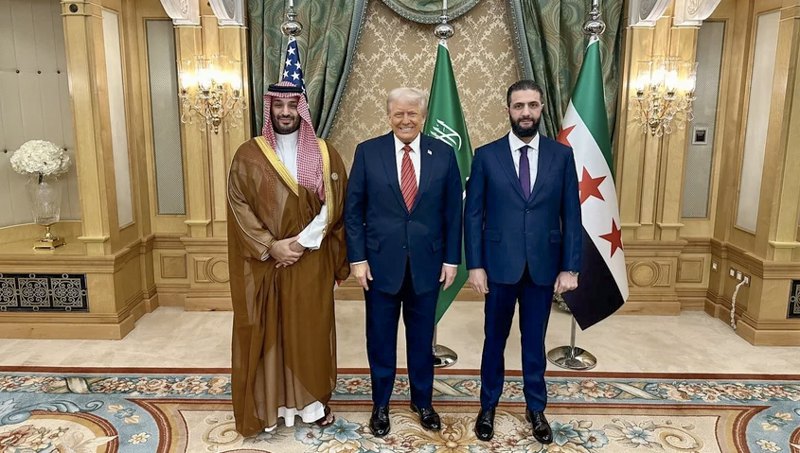
Ahmad al-Sharaa (President of Syria — Ed.) has so far achieved certain results regarding the lifting of American sanctions. This opens the way to the full unblocking of economic, political, and any other activity with Syria. It gives opportunities for Saudi Arabia, Qatar to invest in Syria. Competition between these countries will increase, as well as between Saudi Arabia and Turkey, which can quite possibly divide zones of influence.
Both politically and militarily, Turkey plays an important role for present-day Syria. It is the guarantor that the fragile agreements reached will be implemented.
Turkey is an important player in the region and will use these levers to continue consolidating its presence there.
Saudi Arabia will use its levers. Its influence is growing. It was in Jeddah that al-Sharaa met with Trump and received consent to lift sanctions. Moreover, these sanctions were lifted without harsh obligations to sign a peace treaty with Israel.
From the very beginning, the Syrian government said it was ready to negotiate with Israel to stabilise the situation. The question of negotiations and Syria joining the Abraham Accords is on the table (the Abraham Accords are a series of normalization agreements between Israel and Arab states signed in 2020–2021 — Ed.). Delegations are coming to Amman (capital of Jordan — Ed.). It is quite possible these are preparatory meetings where each side states its positions. I think this process will be long. The Syrians have not made commitments to conclude an agreement soon.
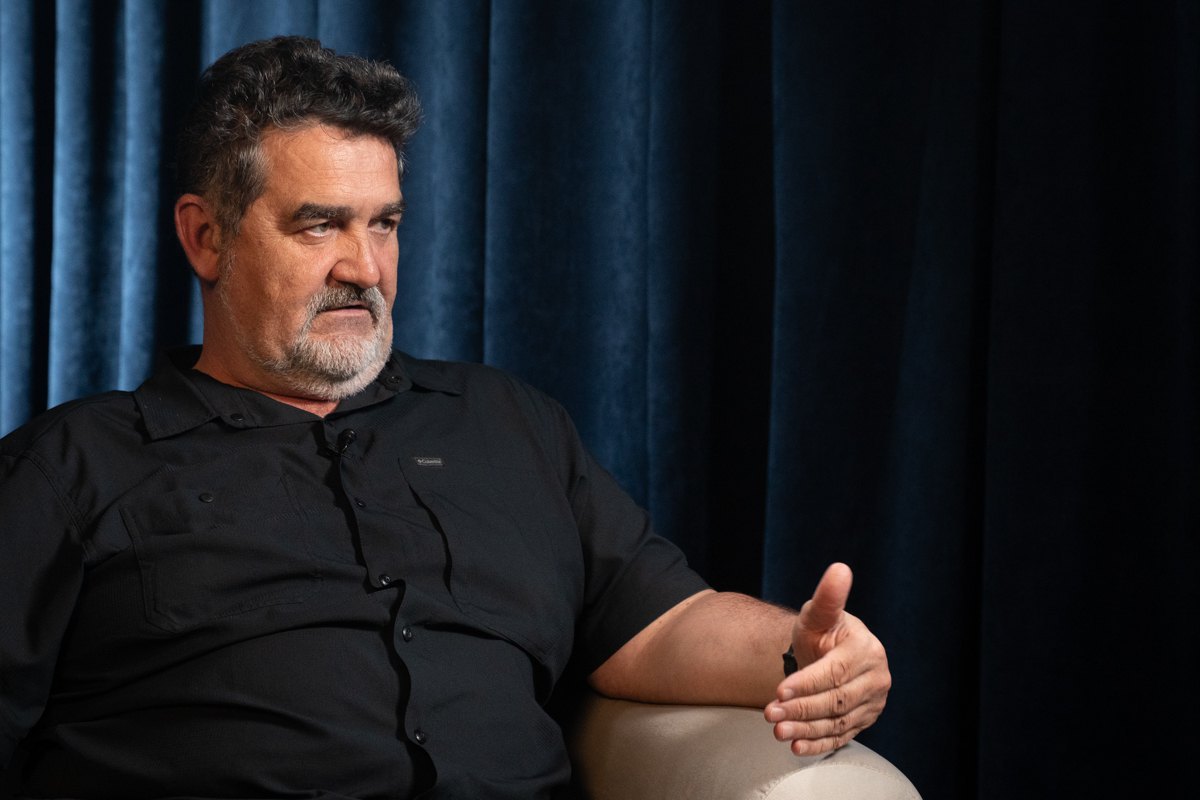
‘We see real steps by Armenia and Azerbaijan to strengthen their sovereignty’
Russia created a conflict in relations with Azerbaijan, and it no longer acts as the former satellite and partner. Can we talk about the emergence of a self-sufficient actor in the region, closer to Turkey, or will everything roll back to previous cooperation formats?
I think there will be a rollback; such a conflict cannot last too long. Too many interests, too many wealthy people in both countries share common interests.
However, the situation has changed. One can consider what happened as a symptom, concrete signs of change or a trigger that led to a change in the situation. I think it is still a symptom.
The key problem for Azerbaijan was security. From the north, Russia loomed over them. It was not the first time Russia tried to destabilise the situation in Azerbaijan and tried to use the Azerbaijani diaspora and influential people to undermine the Aliyev clan’s power. From the south was Iran, which had its own version of dissatisfaction with Azerbaijan, notably Azerbaijani-Israeli relations.
Now the situation has changed. We see Pezeshkian (President of Iran — Ed.), Aliyev, Erdogan, negotiations between them. Previously Putin was always there, but now he is not. This is very symptomatic.
The southern threat to Azerbaijan has decreased. Russia can no longer influence Azerbaijan’s internal political situation politically or militarily. The military contingent issue in Karabakh is resolved. This means that basically we owe each other nothing. We provided services in the past, you provided us. We parted ways.
The Russians do not think so and tried to play this situation back. The people who were arrested and killed turned out to be Azerbaijanis (On 27 June 2025, Russian security forces detained and beat over fifty members of the Azerbaijani diaspora in Yekaterinburg; two detainees died — Ed.).
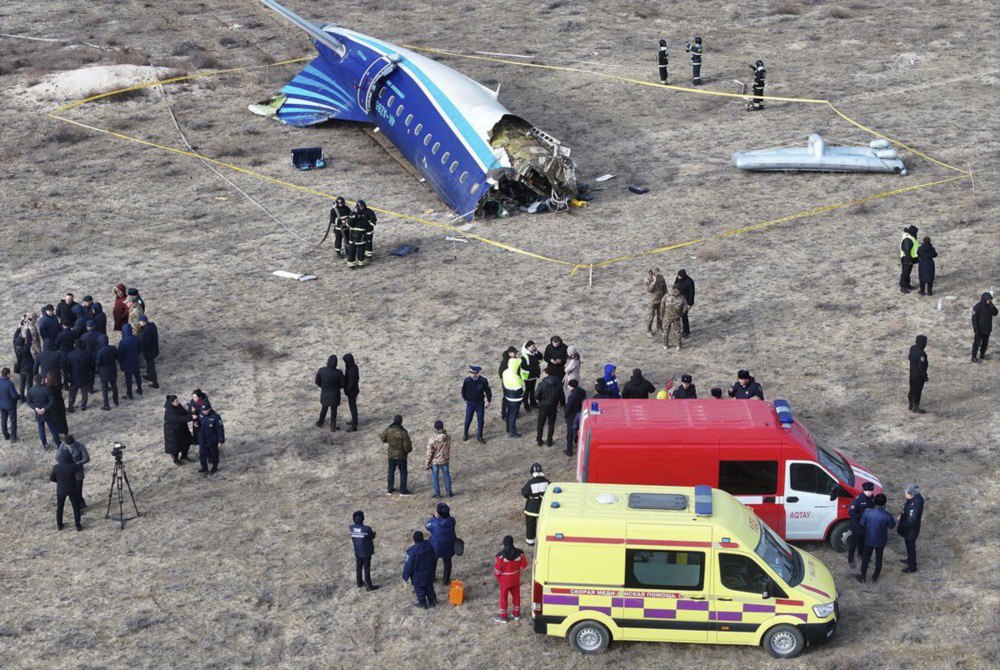
Aliyev could not ignore this in the context of the previous plane downing (referring to the crash of Azerbaijan Airlines flight 8243 — Ed.). It was important for him to respond. Although the story at the beginning might not have been specifically anti-Azerbaijani but purely Russian.
This may all overlap with the fact that a redistribution of property is taking place in Russia. Possibly, groups surrounding Putin who are now awaiting a power transition are simply taking over everything that is poorly guarded. Property belonging to ethnic minorities is perceived as a piece that is quite easy to capture.
Is the deployment of a Turkish military base on Azerbaijani territory, announced by the head of the previous presidential administration Heydar Aliyev, a real prospect?
The Turks are already there. According to an agreement signed by Azerbaijan, Russia, and Turkey, there is a Turkish military contingent. It is small, demonstrative.
When the Turks encountered a categorical no from Moscow, they agreed to a small contingent. This is the popular three-body theory: they spin, and each affects the other two. In this case, as soon as Russian influence becomes weaker, theirs strengthens. No one will be able to shout: ‘What are you doing there? Why have you decided to build a base there?’ As soon as Russia lost these possibilities, it immediately lost positions in the Caucasus — and this is a symptom.
One can look at the changes in Armenia. Prime Minister Nikol Pashinyan previously spoke about returning to the course of European integration. On 9 May, he travelled to Moscow and made several visits to Putin. Now he pre-emptively attacks pro-Russian forces in Armenia, neutralising the pro-Russian opposition that could harm him. So the situation has radically changed again.
Everyone was under Trump’s political hypnosis and feared that if Trump stopped the war, Russia would look for who betrayed it, who tried to negotiate behind its back.
As soon as it became clear that this probably would not work, everyone returned to attempts to strengthen their sovereignty and get rid of excessive Russian influence. Now we see real steps by Armenia and Azerbaijan to strengthen their sovereignty.
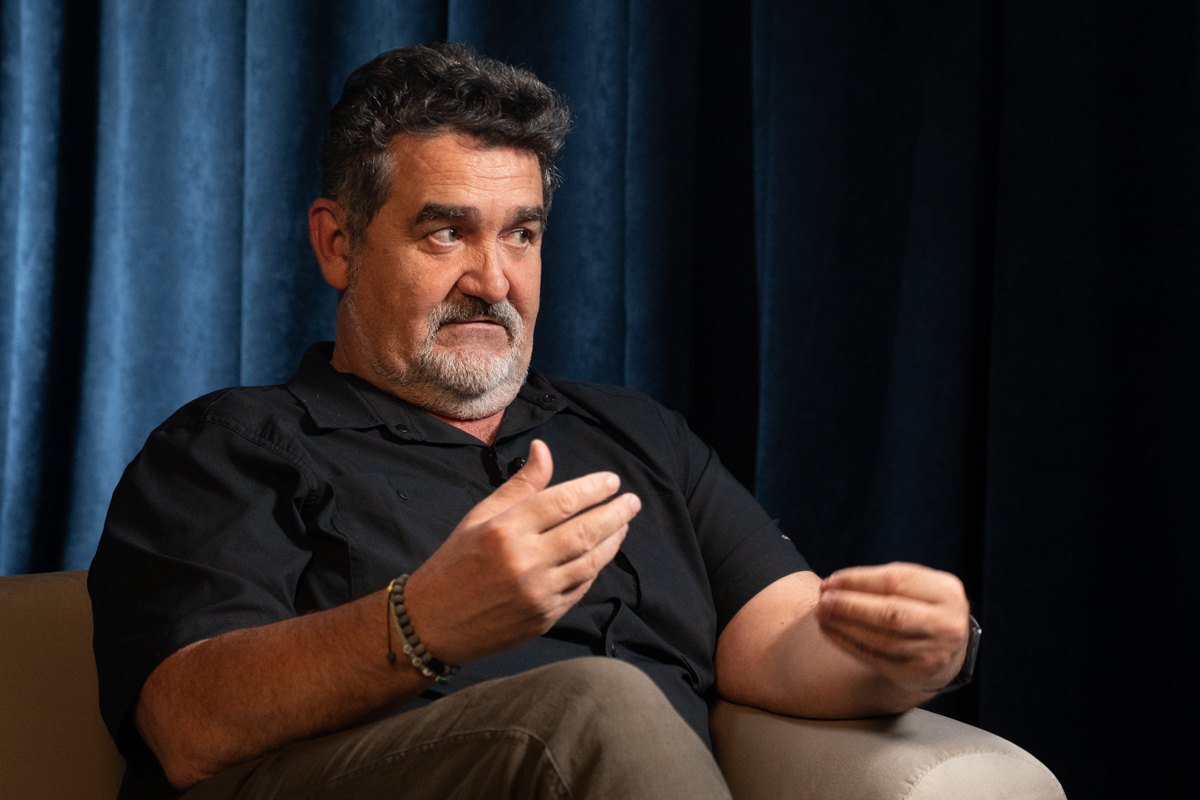
‘Georgia wants to slip between the raindrops’
Is the weakening of Russia’s role in the Caucasus strategically important for us?
Georgia wants to slip between the raindrops. They are waiting to see how the battle ends, then they will say they are with the winners.
Armenia and Azerbaijan also hesitate. Azerbaijan now has more allies, but the only ally who proved reliable is Turkey. Although Turkey has both regional and specific interests with Russia. But in Azerbaijan’s case, this is a clearly formulated and fixed national interest of Turkey.
Turkish influence in Azerbaijan is growing — the same military base, relations with the US and Israel are quite successful. The participation of Azerbaijanis as mediators in negotiations between Israel and Turkey itself says a lot.
Azerbaijan has quite good prospects for economic relations with the European Union. Despite critical remarks about Azerbaijan, oil is important for the economy.
Azerbaijan has greatly strengthened its positions and can challenge, albeit cautiously, taking into account the diaspora.
Armenia has no options: either back to what they had or forward, which is frightening. Forward means an agreement with Turkey, an agreement with Azerbaijan, becoming a transit territory, clear affiliation with European integration, European allies, and quite a complicated and dangerous life in this region. Of course, given all the circumstances, no one there will become friends.
‘Strategic partnership of Ukraine, Turkey and Azerbaijan continues to exist’
Can Ukraine bring closer to itself states that are drifting away from Russia?
The strategic partnership of Ukraine, Turkey and Azerbaijan continues to exist, so there is a basis where we can develop relations.
There are political aspects that the Ukrainian side has always taken into account: Azerbaijan did not vote (at the UN — Ed.), did not supply us with weapons, but humanitarian aid was substantial.

The same applies to Armenia. For a long time, it was an unfriendly country to us, part of the CSTO (Collective Security Treaty Organization — Ed.). Pashinyan’s statements at the start of the war, when he was still trying to please Putin, were, to put it mildly, uninspiring.
The changes and transformations happening there are to our advantage. Weakening Russia is our plus. Can we tie Baku and Yerevan to our interests? It’s difficult. They are very cautious because getting too close to us means becoming an object of even greater aggression from Russia.
Showing support, very cautious and gradual rapprochement within clearly defined limits is normal. We should not expect the impossible from them now.
It is enough that Azerbaijan provides us with humanitarian aid. If it votes for Ukrainian resolutions, that will be great. If it sells oil and gas to Europe, that’s great. In principle, we are completely satisfied with this.
‘Expecting a war for independence in Chechnya is not worth it’
Should we expect a power transition in Chechnya, especially considering information about the leader’s health? And can this lead to certain intra-Russian confrontations?
Clearly, sooner or later a power transition is needed, and they want to make it smooth. How it will be, no one knows. In principle, it may happen suddenly, and then the power transition will look like a fire.
However, expecting this power transition or a war for independence, something like what we saw in the 1990s, is not worth it. I don’t think there are political, economic or social reasons for this now.
In this sense, the key event will still happen in Moscow. If we look at the late 1980s and early 1990s, all national republics, including Ukraine, were conservative regimes for a long time. Moscow changed much faster than these conservative republics. What we see now in Russia is roughly the same.
Without changes in Moscow, without radical changes of power, any political coups there will not move anything enough to seriously affect us. The centre does not control resources.
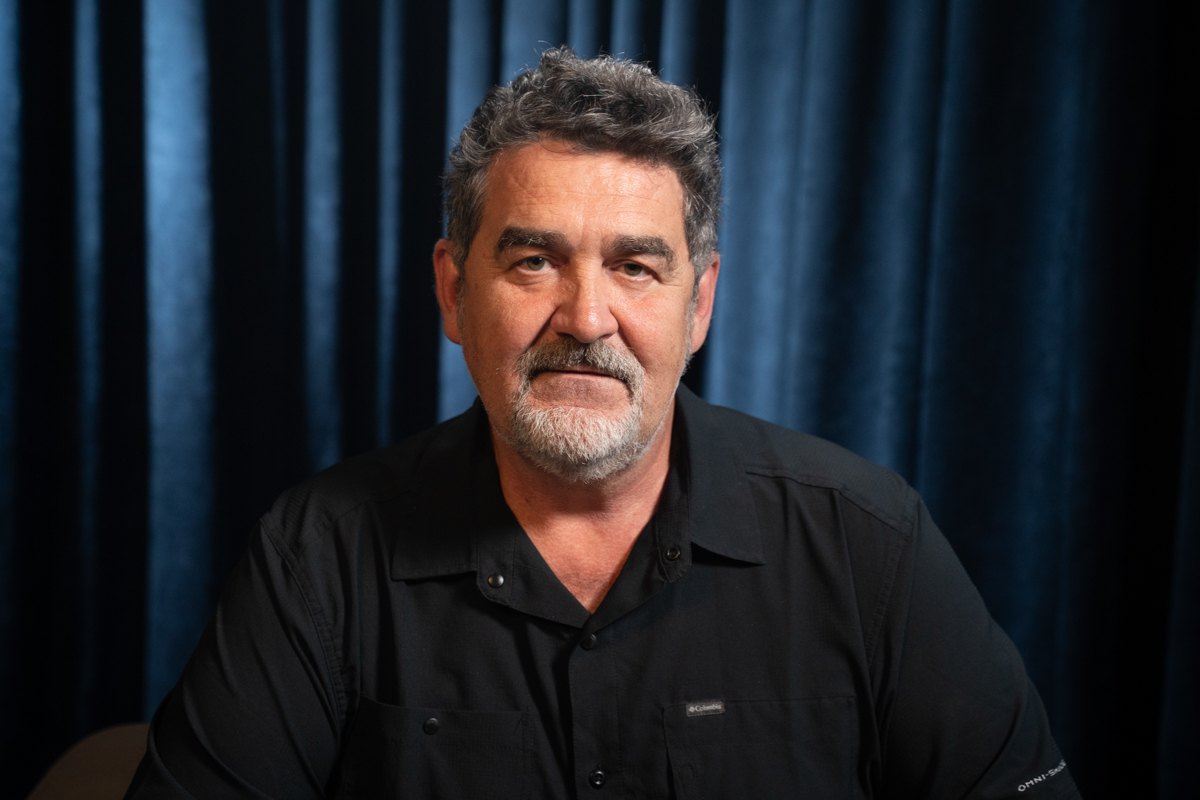
And will Adam (son of Chechen head Ramzan Kadyrov — Ed.) be in place of his father, or will there be some shura (council — Ed.), or will the father be such that he steps aside but continues to rule and supports his son’s power by his authority?
This format is quite common. The King of Saudi Arabia is alive, he is old and has difficulties, his son Mohammed bin Salman (Prime Minister of Saudi Arabia — Ed.) rules. This way a crisis in elite groups is not created because you cannot create a crisis when the king is alive. A crisis arises when the king dies.
If Kadyrov nominally transfers power to his son, no changes will happen.
Medicine has reached such wonders that a person can be kept alive for a long time, able to open their mouth. We should not expect sudden death from illness. Although a person is mortal, we all know that.
What can destabilise Russia?
The only thing that can seriously change the situation is defeat. Prigozhin’s rebellion in 2023 largely arose because of this; he constantly appealed to it himself.
After the main defeats Russia suffered in 2022, there was a period of preparation for the offensive, then it started unsuccessfully, one way or another, there was an expectation of disaster, and this led to the rebellion.
This is the only effective way to provoke unrest.
Why was this not fully realised?
Because he (Prigozhin — Ed.) is a Putin loyalist, he supports the tsar, you understand? It is like classic Russian uprisings when the Cossacks killed the boyars but thought the tsar was unaware of their actions.
Any such rebellions can be useful to us when their negative energy, aggression is directed inward.








